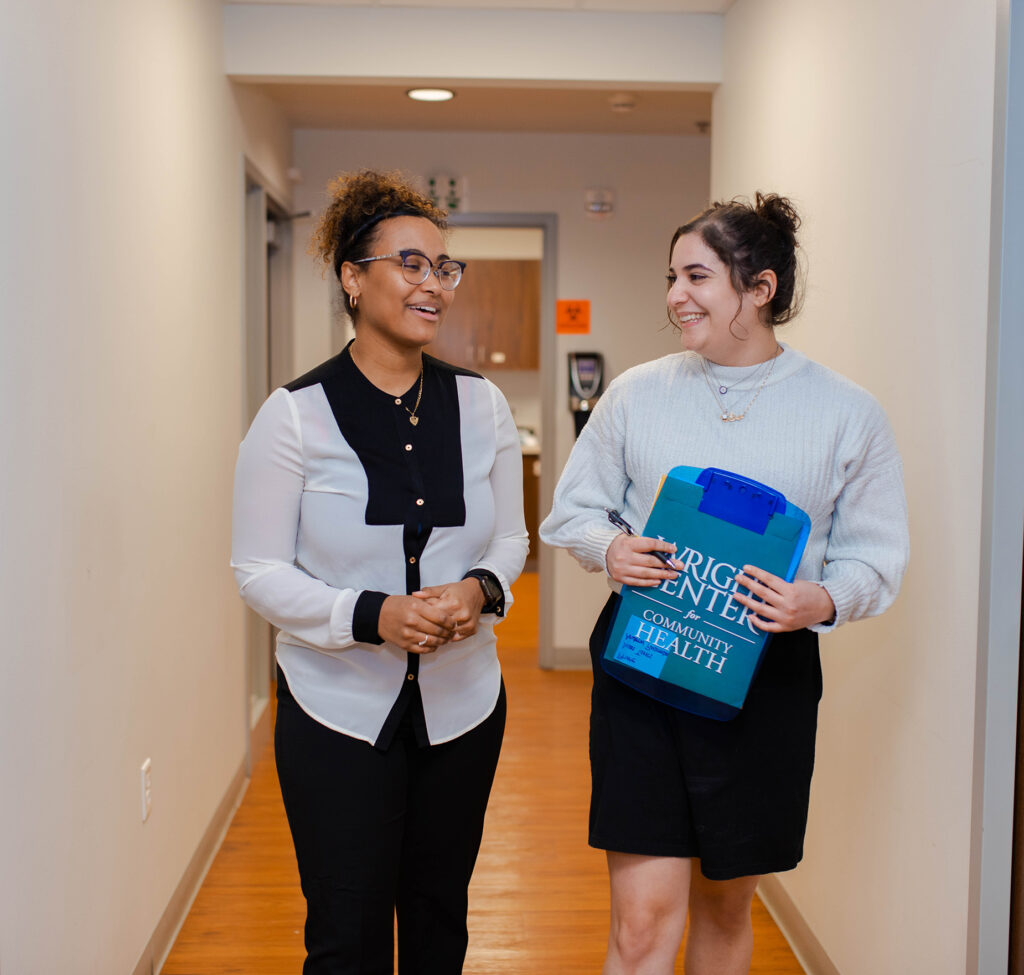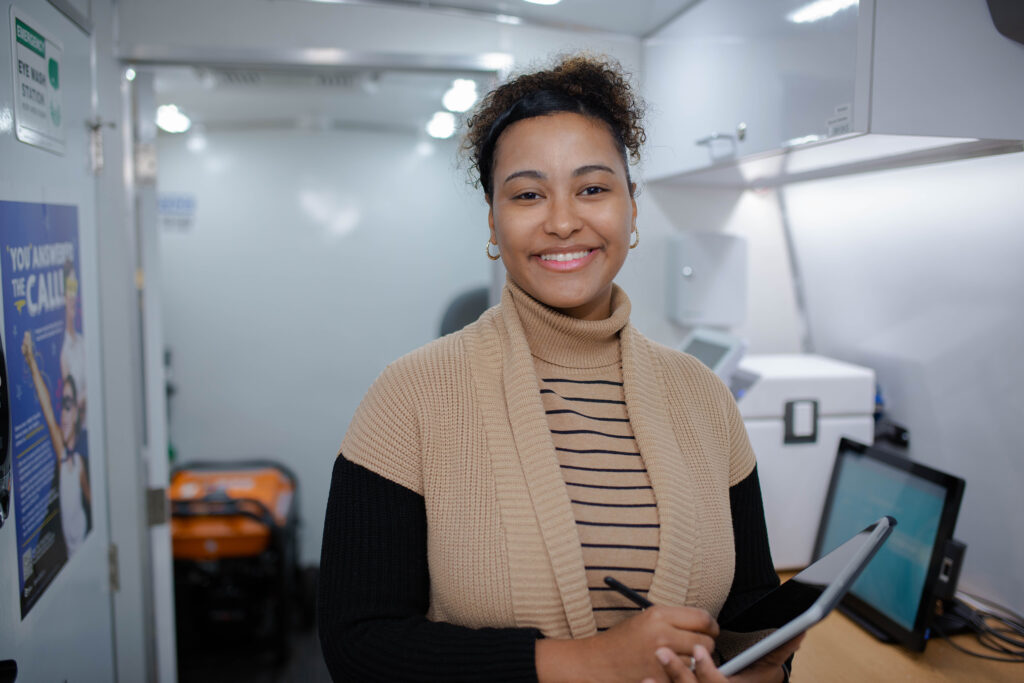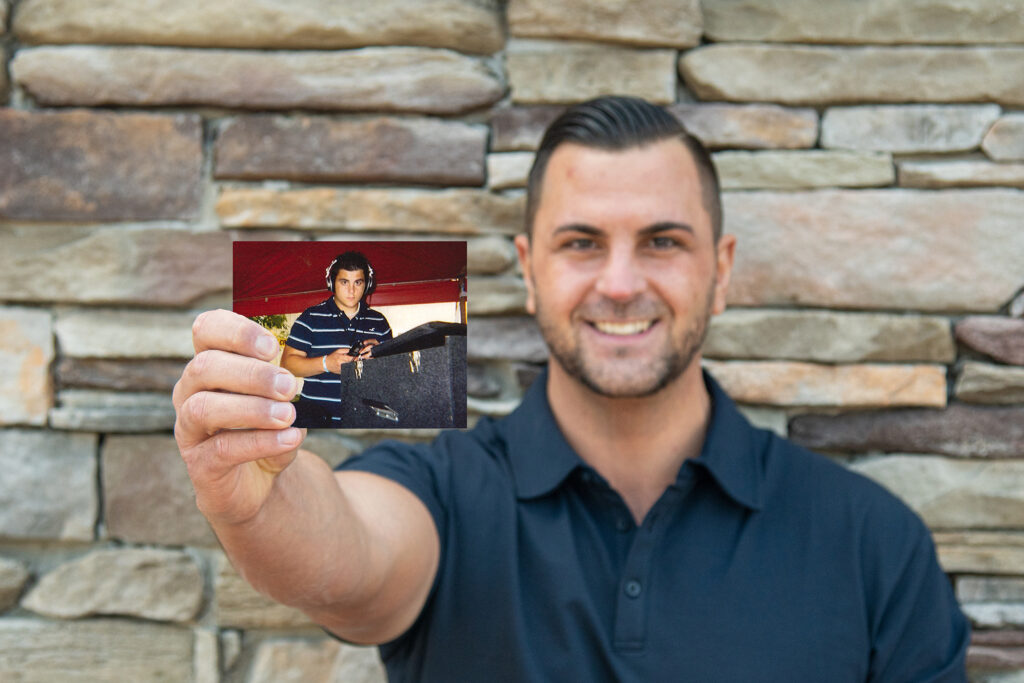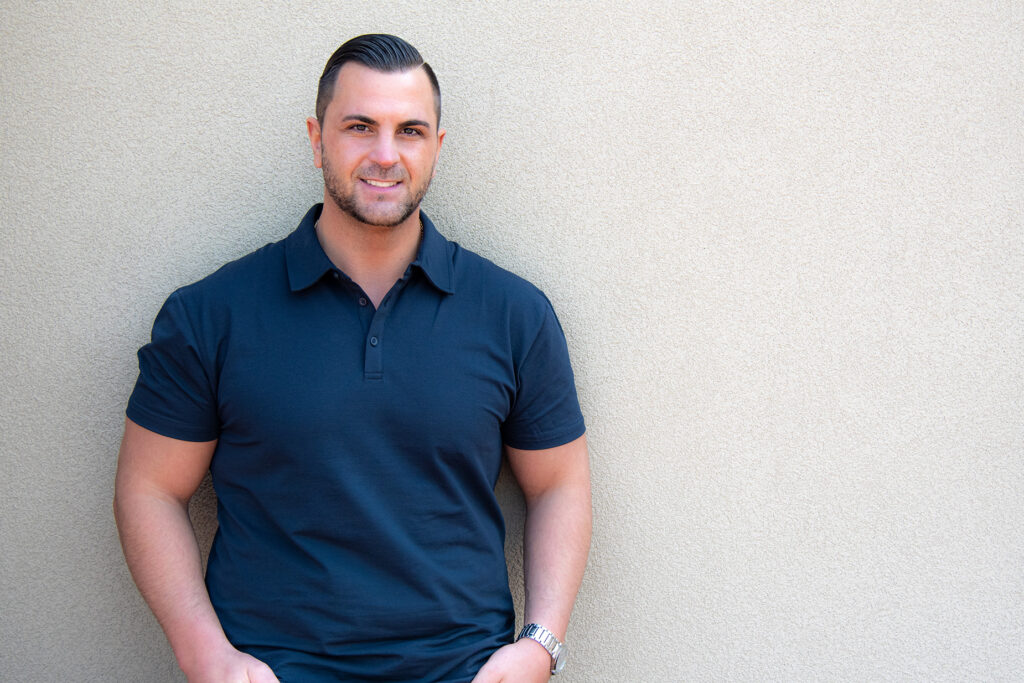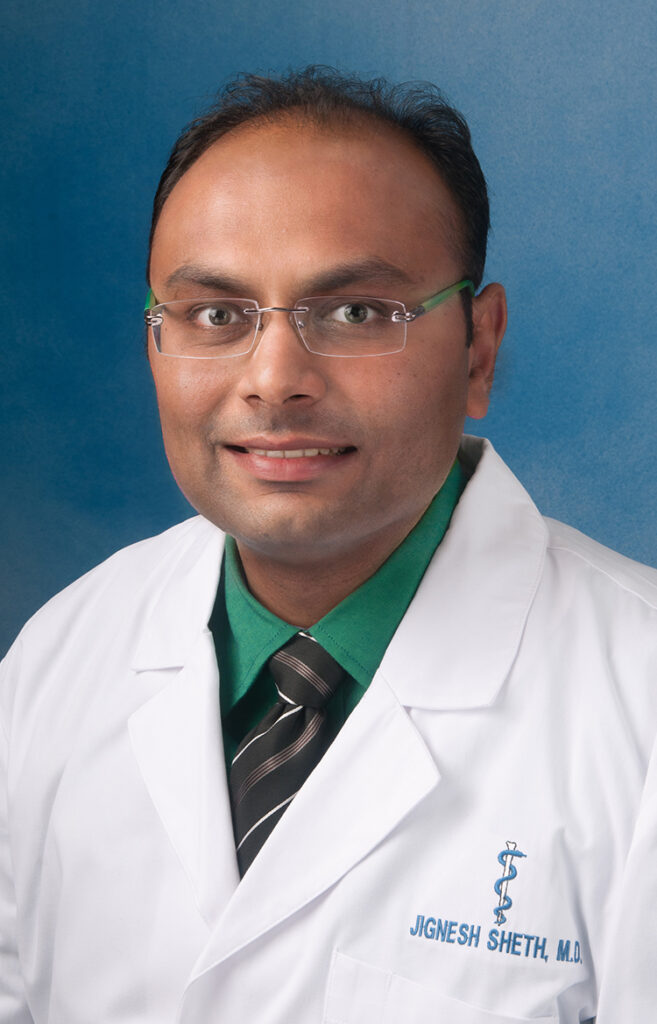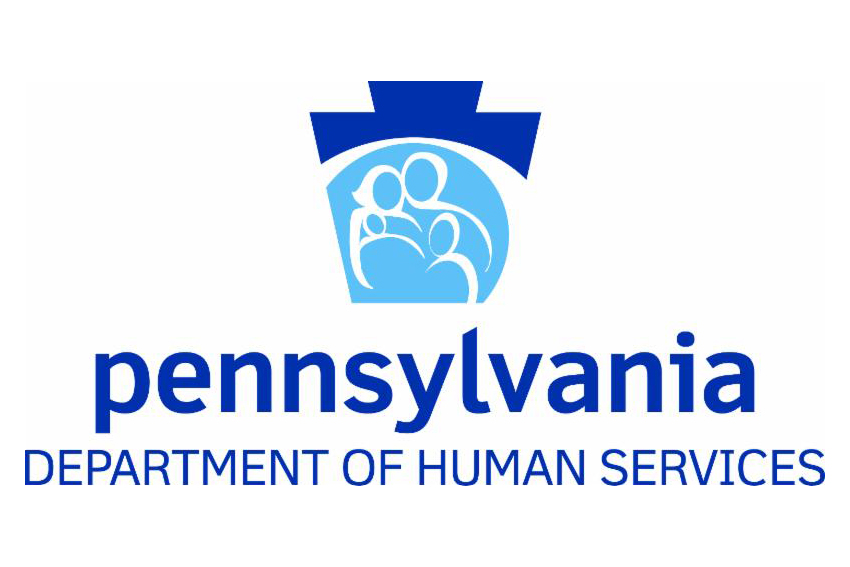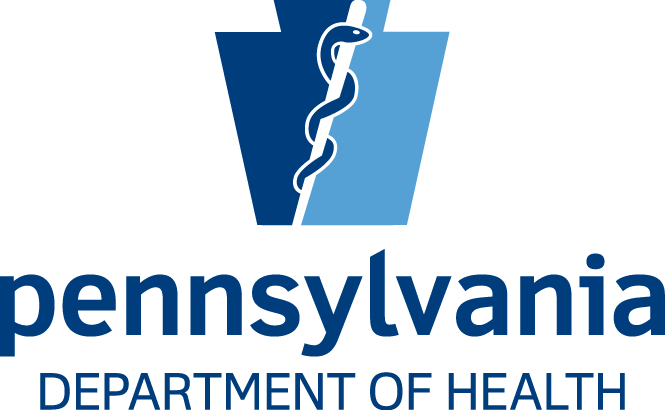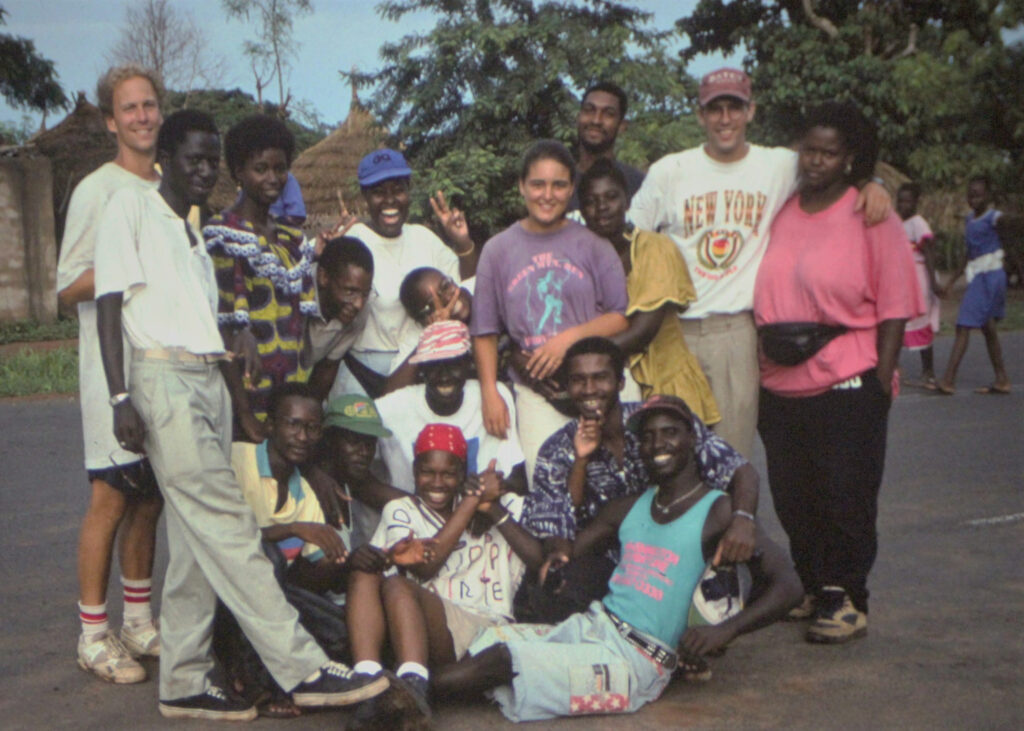
The Wright Centers for Community Health and Graduate Medical Education’s Dr. Douglas Klamp has worked around the world to improve access to health care, including in the West African nation of Gambia. In 1993, he served as the group leader for Operation Crossroads Africa with fellow providers from Gambia and the United States.
Dr. Klamp’s overseas aid trips and professional insights make him the right fit for nonprofit’s new talent acquisition role
Douglas Klamp’s plan to become a veterinarian was upended during a college trip in 1982 to southern Africa, where he saw stark injustice and soon discovered his life’s calling.
Klamp, who was then a Penn State University senior, was an eyewitness to how South Africa’s now-abolished system of racial segregation split the population into the haves and have-nots. In neighboring Lesotho, he was especially struck by rural Black residents’ “lack of access to health care.”
“There were not any health facilities for many, many miles,” he says. “And very few people had cars, so it would be a half-day or a day-long hike to get to a provider.”
Even before he flew home that summer, Klamp had decided to change his career path. He would become a physician.
Today, Dr. Douglas Klamp is a valued leader at The Wright Centers for Community Health and Graduate Medical Education, where he remains as committed as he was four decades ago to the cause of expanding access to health care for low-income, rural, and other underserved populations.
Klamp, associate program director for Internal Medicine, treats patients and trains new physicians at The Wright Center’s primary and preventive care clinics. This year, he added the role of physician chair of resident and fellow talent acquisition.
In the newly created post, Klamp will be responsible for recruiting top-quality medical school graduates who are a good fit for The Wright Center’s graduate medical education programs, looking especially for individuals with a heart for helping the underserved.
The task requires filtering through more than 5,000 applications each year and interviewing hundreds of candidates to fill only 80 available slots. The undertaking requires considerable effort from all program directors and associate program directors. Klamp and other decision-makers evaluate the candidates based on their test scores and medical school performance, as well as more subjective matters.
“I always say, ‘To be a good doctor you need to be a good person – and smart,’” he says. “I’m looking for a quick mind. Someone who can adapt to the unexpected. Someone who has good intuition and good people skills.”
The Wright Center has been training resident physicians locally since it was founded in 1976 as the Scranton-Temple Residency Program. Its creators foresaw the looming challenge in replacing the region’s retiring primary care doctors. They launched their program with an inaugural class of six internal medicine residents.
Today’s Wright Center trains about 250 residents and fellows each academic year, upholding a proud tradition of producing highly skilled and compassionate doctors, and helping to address workforce shortages in medically underserved areas across the U.S.
The task of filling residency slots is facilitated by the National Resident Matching Program, Klamp explains. The program promotes fairness and accounts for the preferences of both medical students and residency program directors.
Medical school graduates who “match” with The Wright Center will work under contract for a set duration, usually three years, at the organization’s training locations in Northeast Pennsylvania or one of its partner training sites across the nation. While embedded in those communities and serving patients, each doctor is also fulfilling the requirements of an accredited residency or fellowship program in disciplines such as internal medicine, family medicine, psychiatry, and geriatrics.
Klamp seems perfectly suited for the talent acquisition role because he embodies The Wright Center’s mission and ideals. He remains a “a firm supporter,” for example, of an initiative involving resident physicians to launch a street medicine program in Lackawanna and Luzerne counties, giving aid to individuals who are experiencing homelessness, according to those involved in the project.
“He truly believes in giving back to the community and humanity as a whole,” says Dr. Jacob Miller, a 2022 alumnus of The Wright Center for Graduate Medical Education’s Internal Medicine Residency. “Dr. Klamp is the epitome of altruism and integrity. By his example, he inspires the residents and future physicians to continue to go back to the roots of medicine and to strive on that journey toward becoming a better physician as well as a better person.”
Overcoming culture shock
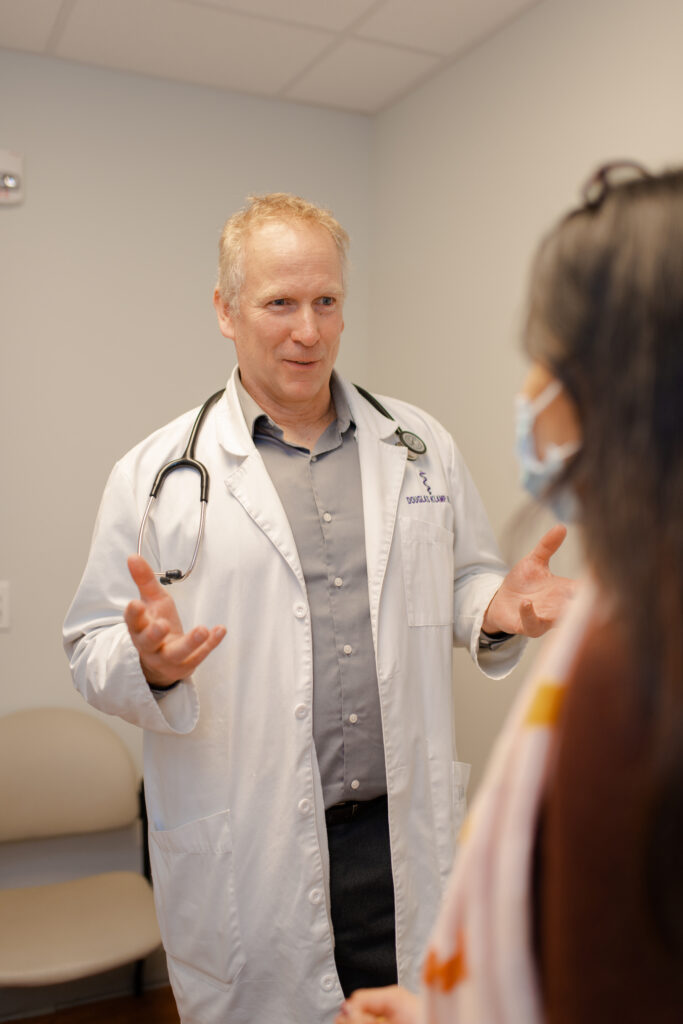
Dr. Douglas Klamp, left, talks to a patient at one of The Wright Center for Community Health’s nine primary care practices in Northeast Pennsylvania. Dr. Klamp, a board-certified internal medicine physician, accepts adult patients ages 18 years of age and older at the Clarks Summit and Scranton practices.
Klamp grew up in Michigan and lived for a while in Indiana, Pennsylvania, hometown of the late actor Jimmy Stewart, best known for his George Bailey role in the Christmas classic “It’s A Wonderful Life.” In many respects, Klamp’s medical career has had a Bailey-esque impact.
He has left an imprint on countless patients in Northeast Pennsylvania and overseas (including some he’s never met), the many physicians he has trained on multiple continents, and even the medical school where he studied.
Klamp attended Johns Hopkins University School of Medicine, one of only two students in his class of 110 who had not gone to private school, he says. “It was a bigger culture shock for me to go to Johns Hopkins than it was for me to go to South Africa,” he says.
While earning his white coat there, he co-founded a club called Students for International Health, which invited lecturers to talk with the medical students about overseas public health challenges and opportunities. The subject matter was later incorporated into the school’s curriculum, he says.
Dr. Robert Wright, namesake founder of The Wright Center, convinced Klamp to move to this region in 1997 to serve as associate program director of the Scranton-Temple Residency Program.
For Klamp, part of the allure was that he also would be the founding medical director of the startup Scranton-Temple Health Center, in which the residency program’s trainees then performed all of their outpatient services. “I thought making that clinic successful would be a good challenge,” he says.
He would later leave The Wright Center to pursue other objectives, including serving as medical director of the McGowan Institute for Health Community Initiatives of the Mercy Foundation, where he directed an eating disorder coalition and prison outreach efforts, and coordinated a cardiovascular disease prevention program. He then ran a private practice in Scranton for about 17 years, before rejoining The Wright Center’s nonprofit enterprise as a full-time employee in 2020.
The Waverly Township resident, who is a husband and father of two, never lost his interest in global health and the push for health equity. For him, “cultural competence” is much more than a buzz phrase, but a critical element in delivering appropriate care to diverse patient populations and in reducing disparities.
“I think the best way to gain cultural competence is to live and work in tough situations overseas, where you have to solve problems with the local community,” says Klamp. “It gives you a much more solid understanding.”
Reaching across the globe
Klamp has traveled abroad as part of several volunteer medical and service-related trips, mostly to destinations not on any jet-setter’s list of vacation hotspots. Among them: Bolivia, Gambia, the Republic of Georgia, Guyana, Nicaragua, and Sudan.
He considers a two-month stint in Agra, India, to be his most impactful trip to date in terms of direct patient care. “We’d see 80 to 120 patients a day,” he says, noting that the common maladies included tuberculosis, malaria, hepatitis, and intestinal worms.
“The local doctors didn’t need much help with the common tropical diseases, because they had more experience than I do,” he says. “But when the patient would come in with diabetes, heart failure, stroke, or heart attack, then they relied on me a great deal.”
On trips elsewhere, Klamp primarily taught and lectured to health care professionals who were native to those areas. “You don’t see the immediate benefit,” he says, “but the education of those physicians hopefully lasted after I left.”
All of his overseas experiences – from helping villagers build schoolhouses by hand, to seeing overcrowded hospitals in which the beds were shared by two patients at a time – have influenced Klamp’s ability to relate to some of The Wright Center’s international residents and fellows.
“I have more of an appreciation for their backgrounds,” he says. “I’ve worked in countries that don’t have an MRI machine, where tests are very expensive. You have to make decisions based on your clinical impression and treat things based on your best guess.”
In his talent acquisition role, Klamp talks to prospective residents from the U.S., Canada, and far beyond.
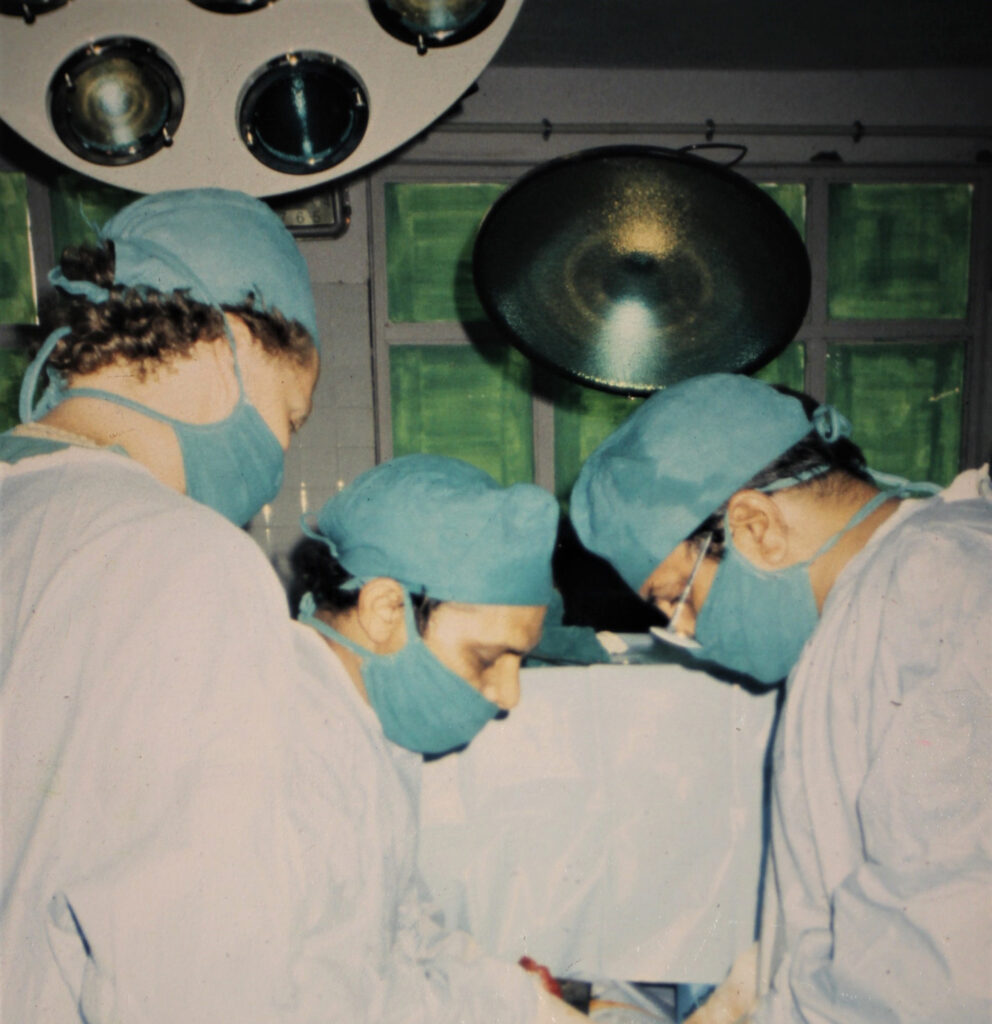
Dr. Douglas Klamp, left, assists doctors during an operation at a charity hospital in Agra, India, in 1991 as part of a program for the U.S. Medical Aid Foundation. Dr. Klamp recently added the additional role of physician chair of resident and fellow talent acquisition to help recruit top-quality medical school graduates for The Wright Center’s eight residency and fellowship programs.
Historically, The Wright Center has succeeded in “matching” with residents who hail from North America as well as India, Pakistan, and Nepal – building one of the most diverse physician workforces in the region.
Klamp hopes to build on that tradition, saying, “I would actually like more diversity in terms of country of origin.”
He spoke during a recent round of interviews with individuals from Africa, Europe, and Central and South America.
As Klamp sees it, the next generation of physicians can only benefit by working, training, and learning alongside professionals who bring vastly different cultural and life experiences into the health care clinic.
Through their daily interactions and sharing of ideas, the doctors can gain the tools and competencies necessary to knock down language and other cultural barriers to care. In turn, many people who traditionally have suffered outside the health care system can be properly welcomed and helped by it.
“When you get all the different cultures together,” says Klamp, “I like what happens.”
For information about The Wright Center and its graduate medical education programs, visit www.TheWrightCenter.org.

